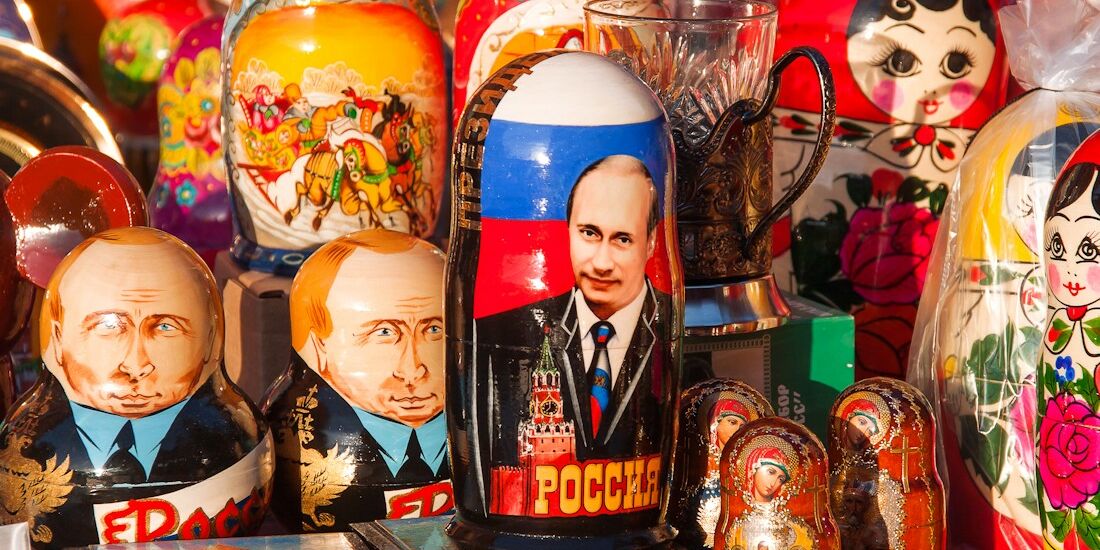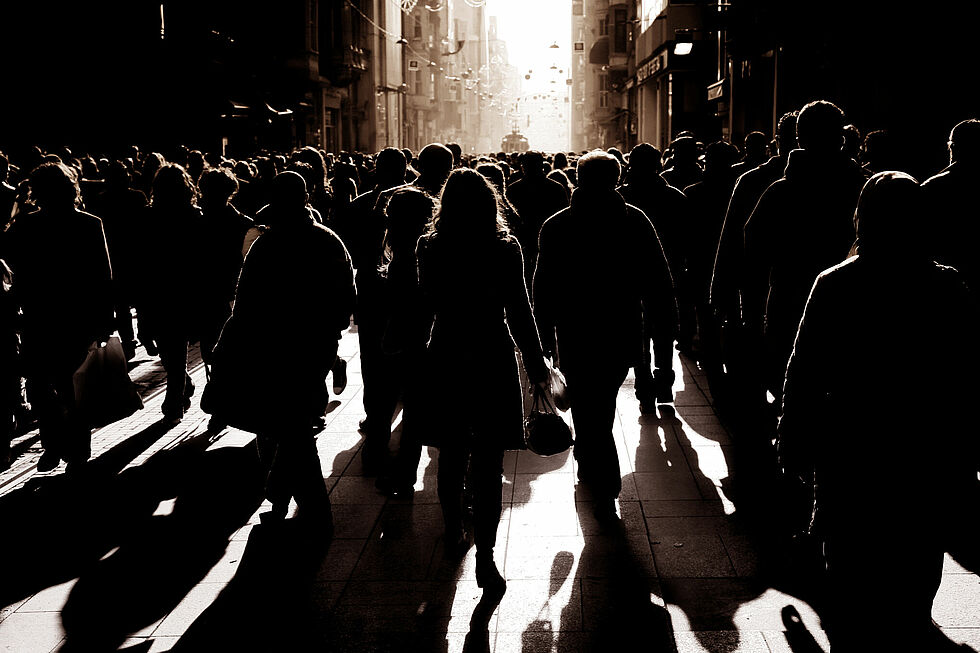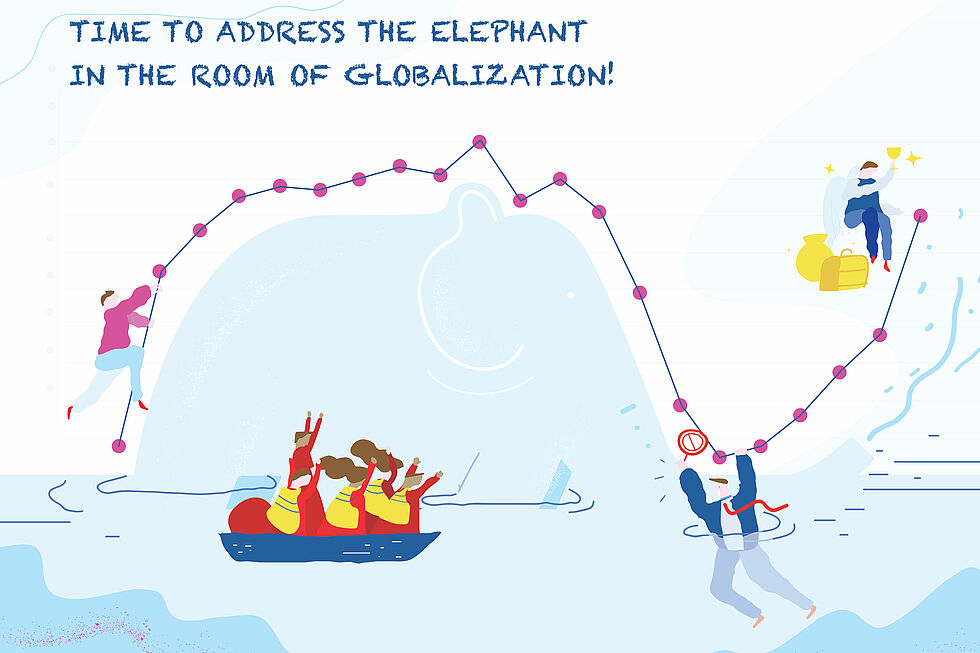Brothers in spirit – Russia and the European right wing

Read the text in German.
At the beginning of February, a delegation of the right-wing populist Alliance for Germany (AfD) from the German Landtag [state parliament] visited Russian-occupied Crimea.
In addition to talks with local politicians, the agenda of the delegates also included a visit to the summer residence of the last Czars, where the post-war European order was laid down at the Yalta Conference in 1945. According to one AfD member in the delegation, people in Crimea were "happy to be back home in Russia" (link in German).
Media backlash to this provocation and breach of an internationally agreed-upon policy of non-recognition of the annexed territory was not long in coming. And that is why the Chairperson of the AfD parliamentary party group spoke out against his party colleagues this time. The crude pandering to Putin and his allies and the systematic trivialisation of Russia's aggressive policy of expansion in the recent past in this connection are at the same time in line with the most recent trend to be witnessed among German right-wing populists. Thus, for example, in the wake of Russia's annexation of Crimea, AfD Chairman Gauland coined the notion "collecting Russian soil" (link in German).
Russia's partners in Europe
In this regard, the AfD is firmly in the fold of a whole series of European political parties ranging along the spectrum from right-wing populist to radical right-wing that have multifarious contacts with Russia's political power elite: The right-wing populist and national-conservative Freedom Party of Austria (FPÖ) concluded a so-called cooperation accord with Putin's Russian Unity Party at the end of 2016. This was followed by the Italian Lega Nord and, shortly before the French presidential election, Putin receiving the chairwoman of the French Front National (FN), Marine Le Pen, in a personal audience in the Kremlin. Furthermore, Viktor Orbán is one of Russia's closest allies.
(Un-)holy alliances
Europe's right wing is cosying up to Putin—and vice versa. But what is driving rightists into the hands of Russia? And what does Russia believe it has to gain from this asymmetrical partnership?
Two journalists Patrick Gensing and Bernhard Odehnal explored these questions on 7 February 2018 in Germany. On the invitation of Friedrich-Ebert-Stiftung in Munich (link in German), in cooperation with the Munich Adult Education Centre, the Evangelische Stadtakademie Munich (link in German) and the Office for Democracy (Fachstelle für Demokratie), Gensing and Odehnal staged a discussion round on the topic of "(Un-)holy Alliances – Russia and the European Right".
Putin's Russia has been politically isolated in the international arena at the latest since the annexation of Crimea. With old partnerships in Europe breaking up with the volte face in foreign policy, Russia needed new allies. At the same time, support for the European right held out the prospects of intensifying intra-European conflicts and hence weakening Europe—aims in line with the Russian strategy. The plan seems to be working: Russia has recently become an ally of the FPÖ, a party that is member of government. But, according to Bernhard Odehnal, the strategy also offers dividends for the FPÖ, AfD, FN and co. Even if these cooperation accords have not produced any tangible effects to date: Cosying up to Russia offers these former outsiders the opportunity to pose as statesmen and posture in the field of foreign policy.
Strategic calculation is being accompanied by ideological convergence. Many right-wing populists consider Putin with his martial and authoritarian image to offer an alternative model to Europe's cultural liberalism. Both Russia and right-wing populists share an anti-liberal streak and are not shy when it comes to glorifying national identity, leveraging patriotism and attempting to thwart the implementation of collective principles such as universal human rights.
Smokescreens?
Despite all the scandals surrounding these "unholy alliances", Odehnal argues that we must not narrow our perspective, as relations with (former) top European politicians and Russia's economic as well as political relations with Europe are at least as important as relations with the Front National or the AfD: "Being bed-fellows with right-wing populist movements is in part also a strategic move [...] to divert attention away from contacts that the Kremlin has long since established with the political mainstream in Western Europe".
One off-the-cuff example here is Gerhard Schröder, former German Chancellor and Chairman of the Supervisory Board of "Nord Stream AG" (owner and operator of the Baltic pipeline) and the Russian energy company “Rosneft”—an aspect that should also offer the German social democracy food for thought.
###
For more information on the topic at the FES contact Anna-Lena Koschig.
About FES Connect
Connecting people, in the spirit of social democracy, we source and share content in English from the German and international network of the Friedrich-Ebert-Stiftung.






